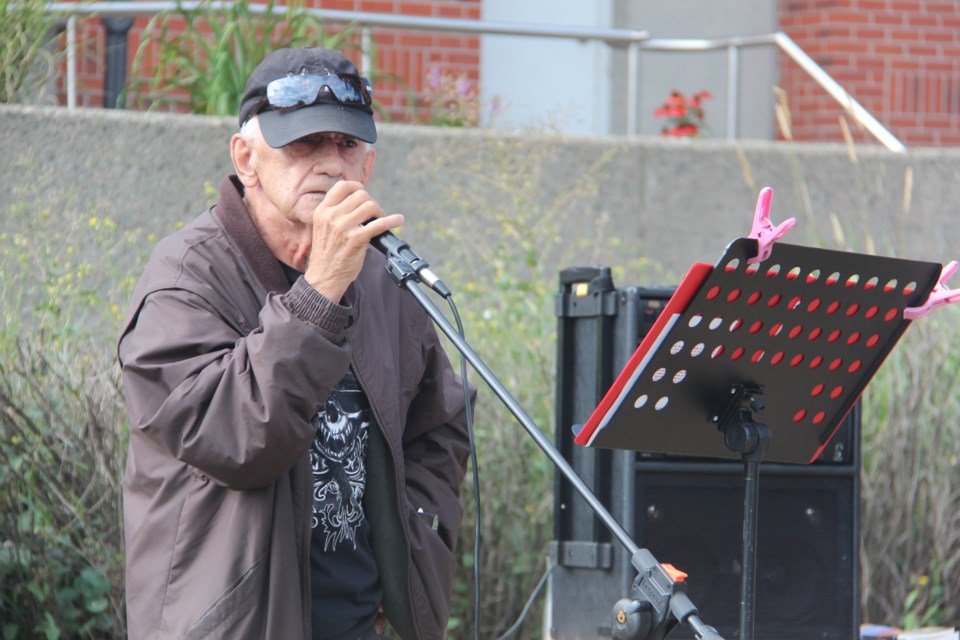He's been known as No. 1218, No. 4210 and No. 099751A during his 40 years in the correctional system. Now he's finally finished his sentence, he goes by his name — Larry Nault.
“The point I'm trying to make now, this is how we're treated inside the system,” said Nault, who first went to jail in 1970, and was released in 2010. “We're a number. We're not humans.”
He gave those gathered for the Prisoners' Justice Day ceremony outside of the Sudbury Jail Friday morning an insider's view of life in Canadian prisons.
Besides speakers, the ceremony also included drumming by the N'Swakamok Native Friendship Centre men's drumming group and hymns and a Sudbury version of the Johnny Cash tune “Folsom Prison Blues” performed by Sudbury Jail volunteers Duncan McMaster and Michael MacBurnie.
Nault said there's a lot of issues with overcrowding in Canadian prisons, which exacerbate violence.
“During the '70s and part of the '80s, I lost a lot of good friends — brothers — and to this day, I still think about them a lot,” Nault said.
“I can sit here for hours and tell you stories … I just want to get this across to everybody's mind, what's going on inside. I've seen it all, and it's not good.”
Prisoners' Justice Day was started after a prisoner named Eddie Nalon bled to death at Millhaven in 1974, despite attempts to summon guards for assistance.
The same situation happened at Millhaven again with another prisoner named Bobby Launders in 1976.
On the one-year anniversary of Nalon's death, prisoners at Millhaven refused to work, went on a one-day hunger strike and held a memorial service, even though it meant a stint in solitary confinement.
One the second anniversary of Nalon's death, a one-day hunger strike was held in prisons across Canada. Prisoners' Justice Day is now commemorated around the world.
Treating prisoners like human beings and working toward reducing violence behind bars is critically important, said John Rimore, executive director of the John Howard Society of Sudbury.
Most prisoners are eventually released into the community, and people forget that, he said. You can't just “lock them up and throw away the key.”
Suicide among inmates is about seven or eight per cent higher than in the general population due to mental health and addictions issues and just despair and hopelessness, Rimore said.
He said people need to speak up and demand changes within the system, including implementing programs for prisoners to better their lives.
There have been some improvements since Prisoners' Justice Day was started, Rimore said. Correctional officers now have more training to deal with prisoners' behaviours going into the job.
But many Canadian jails — including the Sudbury Jail — are very old and overcrowded, he said.
“There are very few places for people with severe issues to go to within the walls, therefore they are placed in solitary confinement,” or prisoners are “double bunking,” which exacerbates violence, Rimore said.
